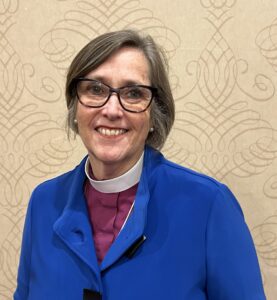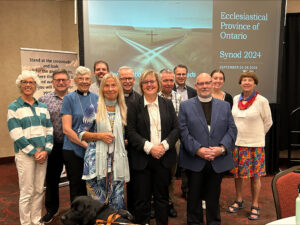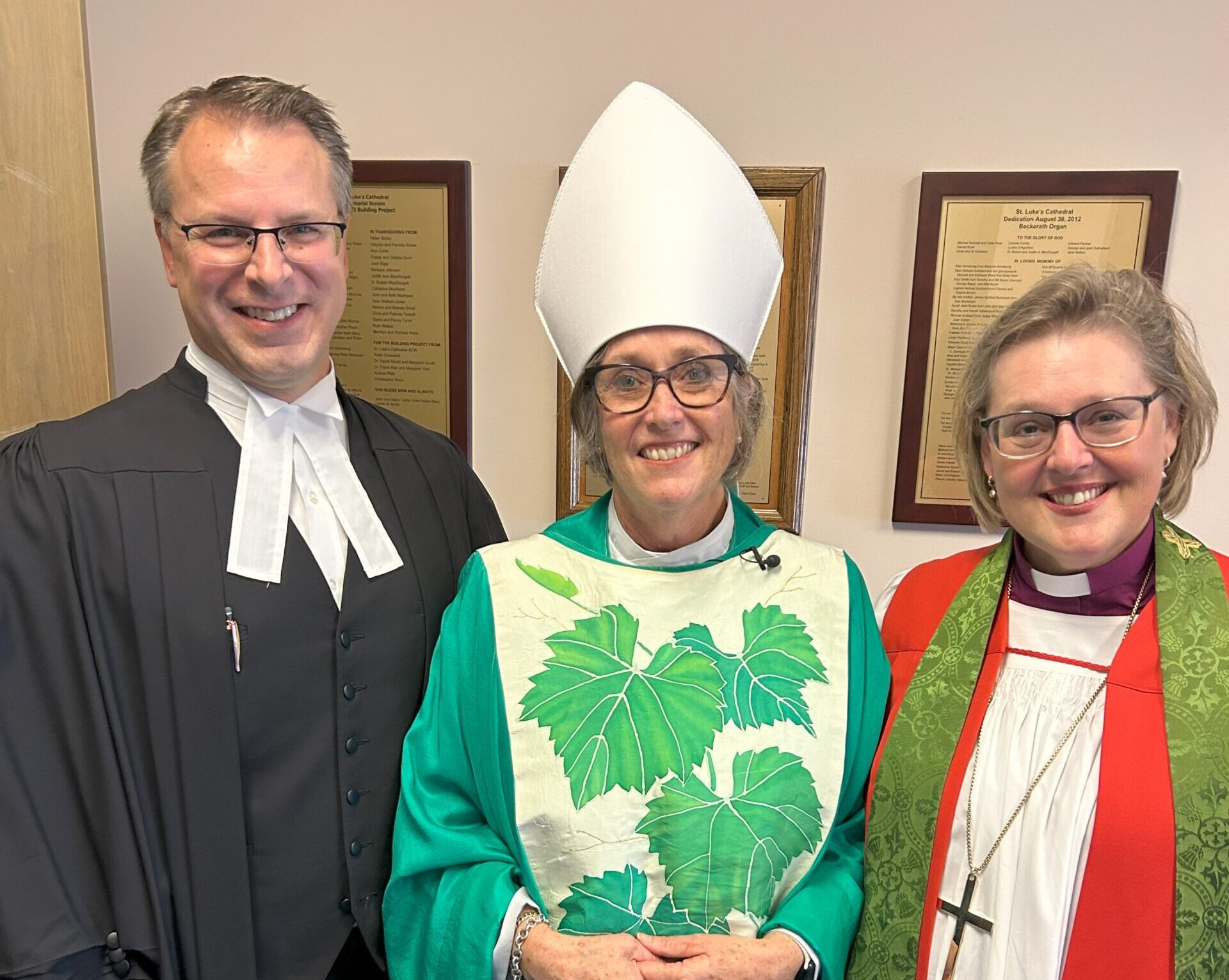“A church at the crossroads journeying into a hopeful future is the image that struck me most as I attended my first Provincial Synod,” reflected Archdeacon Terry Holub, rector of St. David’s, Welland and one of Niagara’s eleven delegates in attendance at the Synod. “As I took my seat for the opening session I was filled with both hope and excitement as I watched delegates from around the province gather together for worship, fellowship, and serious discussions.”
Delegates from the seven dioceses across the Ecclesiastical Province of Ontario—Algoma, Huron, Moosonee, Niagara, Ottawa, Ontario, and Toronto met in Sault Ste. Marie at the end of September for the 38th Session of the Provincial Synod.
Archbishop Anne Germond, who was re-elected for another term as provincial metropolitan during the Synod chose “Conversations at the Crossroads” to serve as the theme of the Synod, based on Jeremiah 6:16: “Stand at the crossroads and look; ask for the ancient paths, ask where the good way is, and walk in it, and you will find rest for your souls.”
In her opening charge to Synod, Archbishop Germond described the Synod as an opportunity to change the course of not only our church but the world as well.
“As a nation and a church, there is much work to be done to heal the wounds of the past and to work for justice for all people. With this in mind, it seems almost foolish for us to be gathered here this week to engage in what some might regard as yet another futile and meaningful exercise in navel-gazing. But I believe what we are doing here as we gather at the crossroads is critical in the larger scheme of things… Our destiny is not in the hands of warmongering politicians, or in the nay-sayers about the future of our church. Our destiny is in the hands of our Creator, our Redeemer, and our Sustainer. As we consider the work that has been done since we last gathered let us remember that we have been invited to participate in God’s mission and purpose for the world, to share in a mission that is so broad, and wide and high that it encompasses the whole of the world.”

The reflections of Jodey Porter, a lay delegate from St. Mark’s, Niagara-on-the-Lake, resonated with the archbishop’s words. “As a delegate who hears and does not see, the voice of this Synod was buoyant with civility and the energy of a church in transformation.” She added that “we were called to be daring, visionary, not peace lovers but peace makers in our own communities and congregations of faith, and the power that we possess as an Anglican Communion will make our world a better place for all.”
Vocations and formation for priestly ministry were a significant focus of the Synod, with each diocese giving a report about their efforts in this regard.
“Bishop Susan Bell led the way for the essential nurturing of vocation for our priestly leaders,” observed Porter. “Our church collectively needs a stronger assertion of the recruitment, support, and evangelism for the call to serve as God’s priests and leaders.” In keeping with the theme and the focus on vocations, Archbishop of York Stephen Cottrell was the Synod’s special guest and speaker. In his opening remarks, delegates were reminded that in baptism we were named to our vocation and that “we belong to each other because Jesus has broken down all the barriers to disunity and division.”
“It is the sacrament of our identity and naming of who each of us is called to be,” reflected Porter about the archbishop’s address. “Think of your baptismal name and the place of your baptism and understand the call of our faith to be fully who you are as Christians.”
Archdeacon Terry Holub noted that during the Synod, delegates had many opportunities to “consider new and innovative ways in which to invite others to experience the love of Christ through vocation”, while also being humbled by an “understanding that some of the ways in which we have functioned in the past as a church was both hurtful and harmful to many and in particular the Indigenous people of Turtle Island.”
As part of the Synod, delegates visited the site of the former Anglican-run Shingwauk Residential School, now home to Algoma University. It was established in 1873 as a residential school for First Nations children and operated until 1970.
“For me, this was one of the most powerful moments of the Synod,” shared Archdeacon Holub. “It was there that I came face to face with the pain and suffering of so many children. As I stood at the entrance to the cemetery just down the path from the former residential school I was filled with deep sadness and hope at the same time. The hope that all of us can do better.”
At the conclusion of the visit, Archbishop Chris Harper, national Indigenous Anglican Bishop, offered a reflection and his hopes for the future of Indigenous peoples in Canada. “He called us to learn and join in the Sacred Circle to be one as a church and never exclude the other or the wisdom each brings,” shared Porter.
A variety of other matters were also brought to the floor of the three-day Synod, including consideration of its finances, a constitutional change to allow for the appointment of a vice-chancellor, and engagement with the Primate’s Commission on Reimagining the Church. In response to reflections by youth members, a provision was made in the 2025 budget to support youth-initiatives at the provincial level.
“I am grateful to have had this opportunity, to witness the dedication of leadership, the resolve of our delegates, and the hope of our church,” said Archdeacon Holub. The Synod was “truly full of grace and the voice of a call to come to the crossroad and choose the ancient path forward,” added Porter.


Our Treasures and Us: A Time for Reflection